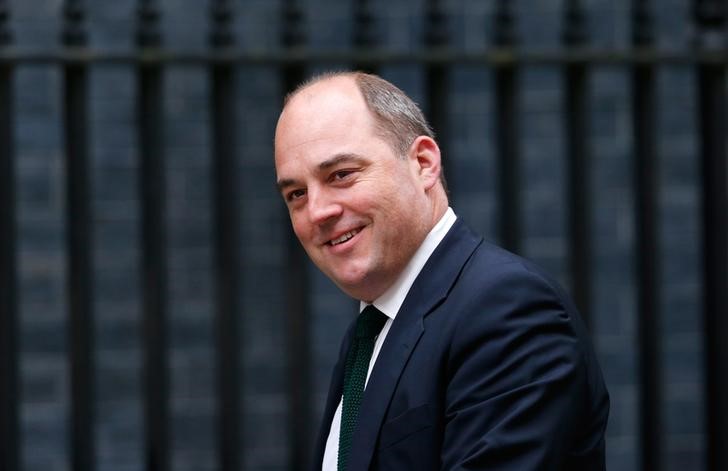LONDON (Reuters) - Islamic State militants have aspirations to launch mass-casualty chemical attacks on targets in Britain and elsewhere in Europe, the British security minister said in a newspaper interview published on Sunday.
Ben Wallace also said British authorities feared that as the militant group was driven out of strongholds in the Middle East such as the Iraqi city of Mosul, Britons fighting for the group would return home and pose a growing domestic threat.
"The ambition of IS or Daesh is definitely mass-casualty attacks," Wallace told the Sunday Times newspaper.
"They have no moral objection to using chemical weapons against populations and if they could, they would in this country. The casualty figures that could be involved would be everybody's worst fear."
The report said no specific chemical plot had been identified but security services had been carrying out exercises to prepare for the possibility.
Islamic State used sulphur mustard gas in an attack on the Syrian town of Marea in August 2015, according to global watchdog the Organisation for the Prohibition of Chemical Weapons.
Wallace pointed to the dismantlement of an Islamic State cell in Morocco in February as evidence of the group's ambition to carry out chemical attacks elsewhere.
"Moroccan authorities dismantled a cell involving chemical weapons. They recovered toxic chemical and biological substances and a large stock of fertiliser. The substances found could have been used to produce home-made explosives and could have been transformed into a deadly toxin," he said.
About 800 Britons are thought to have travelled to Syria, many to join Islamic State, since the outbreak of the civil war in that country. Around 100 have been killed.
"The big concern is if Mosul collapses and all the other bases of Isis (Islamic State) collapse. We know there are a significant number of [Britons] fighting for IS in Syria. They will probably want to come home," said Wallace.
In a separate report, the Sunday Telegraph newspaper quoted the head of Britain's regulator of charities as saying that reports of links between charities and extremism had trebled over the past three years to reach a record high.

The Charity Commission made 630 referrals to police in 2015/16 over "allegations made ... about abuse of charities for terrorist or extremist purposes, including concerns about charities operating in Syria and other higher risk areas", the report said.